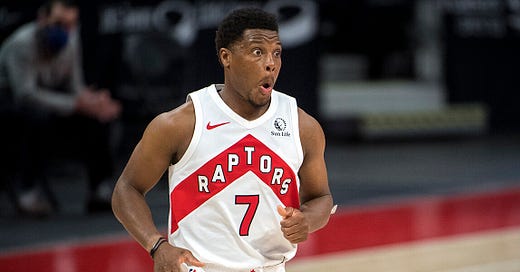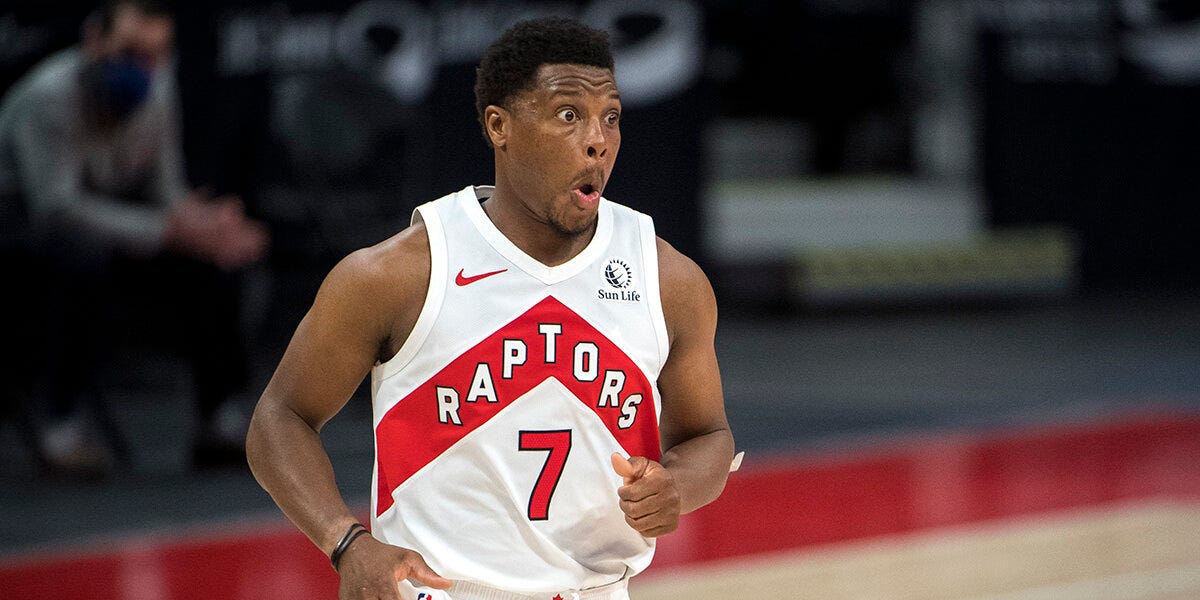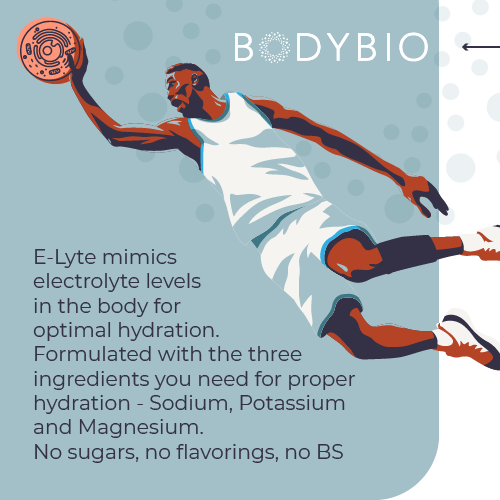Mike O’Connor is the best O’Connor in basketball writing. Previously of The Athletic, you can find Mike on Twitter @MOConnor_NBA. Mike’s writing is brought to you by Body Bio, supplements based on science, focusing on your gut and brain health. Get 20% off E-Lyte and all Body Bio products with promo code RTRS20 at Body Bio’s website.
With the trade deadline less than two weeks away and the Sixers in search of some upgrades, I figured it The trade deadline is less than a week away. The Sixers are without Joel Embiid for at least another week. The Nets and the Bucks have both won 9 of their last 10 games. And the Toronto Raptors are sputtering, having lost 8 of 10 after being struck with COVID issues.
Insofar as a Kyle Lowry trade is possible, the stars seem to be aligning for it to happen -- both the Sixers and the Raptors’ circumstances seem to be shifting in a way that may make them more motivated to get a deal done.
In spite of that, what I’d like to do in this article is present the case against the Sixers trading for Lowry. The popular sentiment at the moment seems to be the opposite, so I’ll do my best here to show why it may not be the best idea.
Let’s start with the obvious: Lowry is about to turn 35 years old and is on an expiring contract. Trading multiple draft picks and a young player -- which is likely the exact price it would take to get Lowry -- is never a no-brainer for a 35-year-old.
Much of the value in trading for Lowry is in the expectation that you could retain him after this season, and if that even happens, you’d be betting on Lowry maintaining a high level of play in his age 36 and 37 seasons. Recent precedent has been good for guards extending their primes, and Lowry has yet to show major signs of decline, but there’s a very real chance that his play falls off a cliff within the next 12-24 months.
Per Stathead.com, only six times in NBA history has a guard averaged over 13 points per game at age 36 or higher. That’s a reductive way to measure production, but the concern still applies -- if you trade for Lowry and then give him a hefty extension, you’re taking a huge gamble on him defying father time.
It is important to note, obviously, that Lowry is still playing at a veryhigh level right now, and you’d be acquiring him in large part to make a run this year. The idea of his immediate fit is tantalizing, but many players at his age undergo an extremely sudden drop-off in play from one year to the next.
My point is simply that after this year, you may end up dishing out a $20+ million per year extension for a player who is about to transition into the role player stage of his career.
Additionally, while Lowry is an awesome fit and clearly raises this team’s championship odds, you’d also be losing at least two rotation players in the process of getting him -- the starting point of any Lowry trade is Danny Green, Mike Scott, and a young player. If that young player is Matisse Thybulle or Shake Milton, that means you’d be losing three rotation players. Any potential deal then means an upgrade in talent, but a downgrade in depth.
The loss of Danny Green, in particular, cannot be overlooked. He leads the team in three point attempts by a wide margin and plays excellent defense. Lowry would make up for it and then some, but it’s another significant consideration here. The amount of talent that the Sixers would be sending out in exchange for Lowry has, I think, been understated.
Another key consideration: unless the Sixers are trading away Ben Simmons in the future, a Lowry trade essentially takes them out of the running for any other star that becomes a trade target over the next couple years.
If, say, Zach LaVine demands a trade next season, the Sixers could theoretically offer a massive haul of draft picks, a couple of young players, and salary to match in exchange for LaVine -- a similar structure to the Bucks’ trade for Jrue Holiday last offseason. But if you dish out Tyrese Maxey and two first round picks for Lowry, then a future deal of this sort becomes nearly impossible. They have enough assets left for one more significant trade, and this just doesn’t feel like the right one.
Even if you’re not a LaVine fan, and you struggle to see where the Sixers could pull off a future blockbuster, remember: it’s the NBA. Star players get frustrated and ask out from their teams every single season. At the moment, the Sixers have more trade assets than just about any other contending team. With the vast majority of their roster on the right side of 30, it may be better to wait until a star becomes available whose timeline fits better than Lowry’s.
If the Raptors are willing to lower the price, and the Sixers could acquire him without giving up any of Maxey, Milton, or Thybulle, I think I would pull the trigger. But for anything more than that price, I would pass and instead invest some more minor resources in a bench upgrade or two at the deadline.
It sucks advocating against a homerun swing, especially in a year where the Sixers have a real shot at the title. I am certainly not saying that it wouldn’t be exciting and that it wouldn’t make them better this year. But between the likelihood of Lowry’s play declining in the next 12 months (if you’re even able to retain him), the price of giving up 2-3 quality rotation players to get him, and the opportunity cost of missing out on any future star trades, I’ve become less and less enthused about trading for Lowry as time has gone on.
There’s an argument to be made that with Joel Embiid’s current level of play and the fragility of his health, the Sixers should pull all the stops and go all-in on this year. If that’s your mindset, I can’t argue with that. But simply within a vacuum, I struggle to see this being the right decision.







